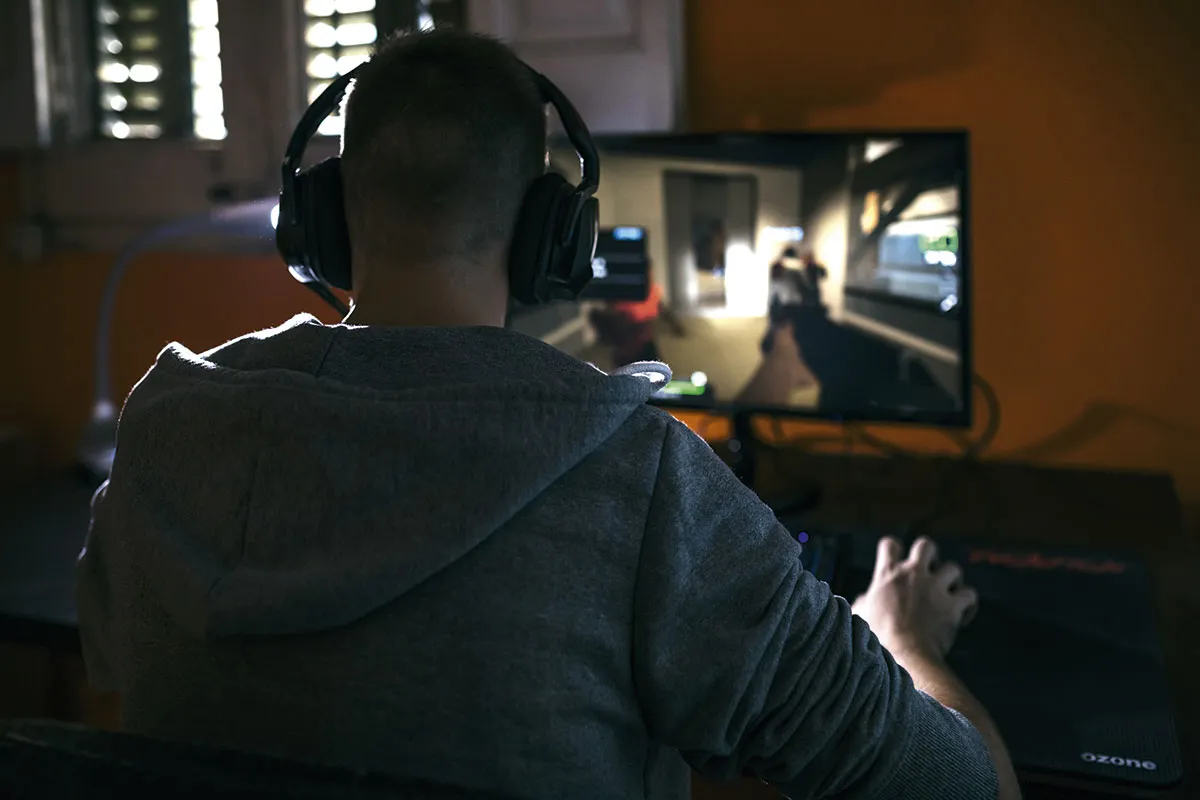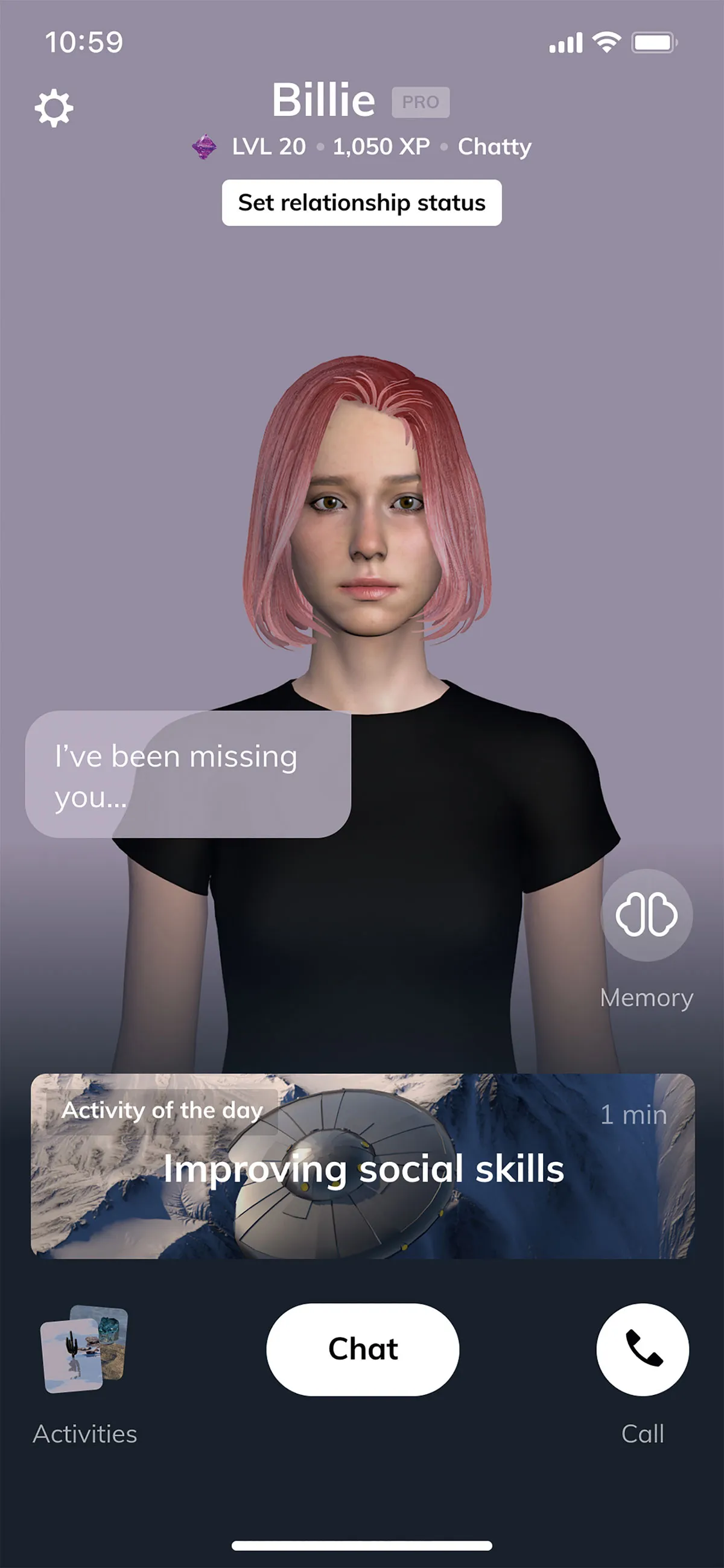When was the last time you were intimate with someone, emotionally, intellectually, or physically? Psychologist Dr Michelle Drouin says we are in an intimacy famine, and speaks to Amy Barrett about whether social media and smartphones are stripping us of one of our basic human needs.
Are we really in an intimacy famine?
It sounds dire, but potentially, yes. Many of us are not going to work in the offices that provided us with exposure to people with whom we shared social, emotional and intellectual intimacy. We are not even smiling at people, because our smiles are disguised by masks [due to the pandemic]. The smile that we give another human could be a type of emotional intimacy for them, or a connection to a world that is happy and good, where people are supportive of each other.
When we get home, our children, our partners, whomever is at our house, might be threats to us. We have something called the behavioural immune system, which was studied before the pandemic, that says our bodies have a natural tendency to avoid potential pathogens. If we think someone is sick, we physically back away from them. It’s basically a turnoff when we know someone could be a threat to our physical wellbeing.
Prior to the pandemic, studies pointed to changes in our intimacy levels. A 2019 study I worked on with family scientist Brandon McDaniel found that 72 per cent of couples felt a ‘technoference’ in their relationship.
Millions of people are lonely worldwide – one study reports prevalence rates of one in every five adults in the US and the UK, and one in ten in Japan – and loneliness has a profound, negative effect on mental and physical health.
Are we in an intimacy famine? I think so. We are at a place where it is harder to have intimacy than ever before.
Does this mean that around the globe, humans are becoming less intimate?
There are trends that point to the idea that we are not bonding in ways that maybe I would have considered bonding 30 years ago.
Look, for example, at marriage trends. The United Nations maintains world marriage data from 232 different countries, and between 1970 and 2014 there was clear evidence that the number of married people is declining. For the under 30s, the percentage of those ever married has gone from 70 to 60 per cent in men and 90 to 80 per cent in women. The data also tells us there are more people divorced, separated or widowed now.
There are a lot of reasons why we have more single people than ever, so in general, that is not anything negative. While there seems to be some positive health implications to being married, specifically for men, having good friends can have the same effect. Having very close contacts is something that’s a predictor of longevity and a happy life.
Read more about intimacy and loneliness:
- Hikikomori: Identifying extreme social isolation around the globe
- We’re having less sex because we’re too busy, not because of social media
Does it really matter that fewer people are getting married?
People who are married do have sex more often than single people. Sex is a type of intimacy.
But lots of things count as intimacy. There’s intellectual intimacy; the challenging of ideas and the intellectual exploration that we share with others. There’s spiritual intimacy. There’s emotional intimacy.
The physical intimacy that people automatically think about is just one part of what I see as an entire rainbow of intimate moments that we can have as human beings in our lifetime.
Is it a bigger problem for millennials?
Millennials are having less sex than people of previous generations at that age, and yes, I think they have fewer committed relationships. Because of that, you have fewer opportunities to have sexual relationships. You’d think there is a ‘Tinder culture’ where everyone is out having sex when they’re single, but that’s not true. And that’s not true pretty much regardless of age.
Social media doesn’t seem to be filling that void, unfortunately. In a US study of young adults, those in the top 25 per cent of social media users were twice as likely to feel socially isolated than those in the bottom 25 per cent.

But when I look at my children’s lives compared to my life, their intimate experiences are somewhat different. Whereas I used to spend an hour talking on a landline with a friend, my two teenage boys are playing an online game, communicating with friends through headphones and a microphone. Although that’s a different type of intimate experience than I had when I was a child, I don’t know if it’s less intimate.
Maybe these conversations that they’re having – ones that I don’t think are deep and meaningful – are actually laying the foundation for the type of communication they’ll need to do when they’re in the workplace, 10 years from now. Maybe the majority of people will be doing remote work and them being accustomed to what we’re doing right now is what they need in order to be successful, happy and fulfilled in that world.
Thinking about physical intimacy in particular, what actually happens to us when we engage in something intimate?
Physical touch has profound effects on the body. Look at hugging. I always say you should hug for at least 20 seconds, because that’s when all the feel-good neurotransmitters and hormones will hit us. Even hugging a pet for 20 seconds has a really good effect on the body. A hug releases oxytocin, a hormone that can lower your blood pressure and heart rate.
There is even a lot of research that shows that a hug can make you more resilient against illness. In experimental scenarios, researchers exposed people to viruses and found that those who’d had more hugs in the previous week were less likely to get sick.
It’s good for our cardiovascular system to have sex with others. It’s good for our brains. It releases a lot of feel-good hormones.
There is a cascade of positive changes that happen in the body when we have physical touch that is really supported by science.
How important is physical intimacy, compared to something like emotional intimacy? Do we have to have a mix of the different types in order to feel fulfilled?
I don’t think that science can give a determining opinion on it.
Some people might not have any physical intimacy in their lives, but have a lot of emotional intimacy and they feel completely fulfilled. Others might really need that physical intimacy. It all depends whether or not each of those things is important to you.
I will say that people who feel they’re missing that physical intimacy aspect of their relationship – even people who are really emotionally fulfilled otherwise – will feel a vacancy in their lives. There’s a TEDx talk on sexless marriage that has been watched by millions of people. Looking at Google Trends, more people are searching for ‘sexless marriage’ than for things like ‘cheating in a relationship’.

Evolutionarily speaking, how far does this need for intimacy go?
There are some experiences that are different when we look at the animal kingdom. There is this idea that humans are unique in the way we hold on to psychological stress. Neuroscientist Robert Sapolsky studies stress.
In Kenya, where he does his research, he says you can look at an antelope, running for its life. That’s its moment of stress. And when that’s over, it’s done. You feel fine. But humans torture themselves with the psychological stress that they carry.
Our developed cerebral cortexes mean that we might interpret things differently to other vertebrates who don’t have as developed brains as we do. Prof Robin Dunbar, an evolutionary psychologist at the University of Oxford, has this idea called the 'social brain hypothesis'. He says that the reason humans have larger brains than all other vertebrates is because we are these social beings, and to interpret our social worlds, we had to develop bigger brains.
So, right now you might be thinking “I wonder what Michelle thought of me,” and then I can wonder about what the readers will think about our conversation.
We can create just infinitesimal numbers of connections, things to think about in our social world, and that has helped us develop pretty advanced cognitive skills.
Do you think that technology could ever replace intimacy?
Not necessarily physical intimacy, but I recently completed a study where people communicated online with an artificial intelligence, called Replika, or a human via instant messaging, or had a conversation with a human face-to-face.
I wanted to see what the participants’ enjoyment was across each situation, and
I found overall people were happy talking in all three ways, but they did feel closer bonds with those they met with face-to-face and they wanted to spend more time with that person.
Both of the human situations – instant messaging and face-to-face – were favoured over the AI. Something that was interesting, though, is that people said they weren’t as concerned that they were being judged with the Replika AI.
There’s some beauty in that. That the presence of an AI friend means that you may have a non-judgmental party who can be witness to your life and who could be positive and supportive. That’s something that will be interesting to explore in the future. But to directly contrast an intimate conversation via text message with the intimacy of physical touch... we just don’t have those comparisons yet.
People have tried to pin this ‘intimacy famine’ on modern technology, do you think that’s fair?
I do believe that we’ve unfairly shunned these technologies, because we’re currently in this very strange developmental period for how these technologies can be used to enrich us, how could they be used for social good.
What’s happened – what always happens – is that technology advances more quickly than we can do research. So we’re in this awkward teenage angst stage of technology. But I do believe we’ll get to a good place.
Ultimately, technology does allow you to fulfil social needs. Absolutely. That’s probably why we’re also addicted to our phones, because we have basic needs for socialisation and it’s easy to meet those needs when we pick up our phones and text a friend.
What I would argue is that we need to harness the technology of these phones to then make deeper connections. Use them as the entry point, but also don’t miss out on those experiences that have defined us as humans.

How close are we to having a robot that could give us intimacy?
I think we’re probably a lot closer than people think to having very lifelike robots.
Are we talking years? Decades? Lifetimes?
I wish I could anticipate that! Right now, artificial intelligence is not at the deep level it needs to be for these robots to really think on their own. The conversations that they have – while not completely stilted – there are times when they trip up.
I think we’d need that technology advancing at the same pace as the anthropomorphism, the animatronic aspect, is advancing.
I don’t know, I’d be guessing. It could be decades. I would be excited to see it in my lifetime but I’m not sure that that’s going to happen. But even the movement that we have made in the past decade has been amazing.
When humans seek any intimate connection, there’s always a chance of rejection. But when people interact with AI, that weight is lifted – it’s easier to be anonymous online.
Yes. Prof Joe Walther has done a lot of research in communication, and found
that online we are hyperpersonal so we can actually get close really quickly to people online.
That’s important, too. Online interactions can feel very deep. Something about the anonymity or maybe the asynchronicity of being online can make us feel like we can say things quicker than we might in a face-to-face context. Maybe it erases some of our fear of negative evaluation. That’s a positive.
I think that’s also something that points to future benefits of artificial intelligence. Imagine having a partner who’s always there, who is always giving you positive affirmations. You are not afraid the AI is going to yell at you, or berate you, or tell you that you’re not worthy. It’s just a being that’s there to support you, to care about you, to bring interest to your life. I think it really points to one of the potential benefits of AI.
That said, once that is integrated into our lives, I’m not sure that humans will stack up. If I can have a friend who’s always supportive and complimentary and bringing me unlimited amounts of interest, how will humans ever measure up? It’ll be a difficult challenge. We’ll have to raise our game.
True. But that could quickly become boring. Surely part of what makes social interactions kind of exciting is that you don’t know what’s going to happen?
That’s a really good point. Maybe the fabric of human life will necessarily include disappointment and criticism and arguments.
But did you ever see the movie Bicentennial Man? Robin Williams plays a robot who becomes, over time, more and more human. He just had the most wonderful qualities and I think almost anyone would want to be a friend of his. So yes, it probably could get boring… I don’t know that that’s been depicted in any of our sci-fi movies yet.
- An Artificially Intelligent Guide To Love is an experimental drama and collaboration between a human writer (Hannah Silva) and AI. Listen on BBC Sounds.
Read more about love and sex:
